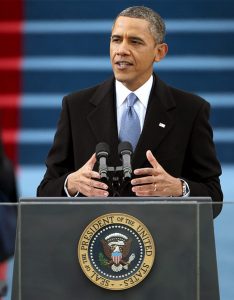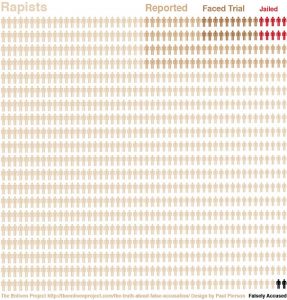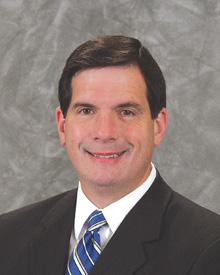Meet the Author Robert Wuthnow is the Gerhard Andlinger Professor of Social Sciences and Director of the Center for the Study of American Religion at Princeton University. Wuthnow is widely published in the areas of sociology of religion, culture and civil society. His recent books include After the Baby Boomers: How Twenty-and Thirty-Somethings Are Shaping the Future of American Religion (my review) and Boundless Faith: The Global Influence Read More …
Our Generation’s Task (#0981)
President Barack Obama spoke the following words yesterday as a part of his second inaugural address: We, the people, declare today that the most evident of truths –- that all of us are created equal –- is the star that guides us still; just as it guided our forebears through Seneca Falls, and Selma, and Stonewall; just as it guided all those men and women, sung and unsung, who left footprints along this great Mall, to hear a preacher say that we cannot walk alone; to hear a King proclaim that Read More …
Proposed Inauguration Benedictions (#0980)
The inauguration benediction offered later today has received considerable attention. More specifically, the spotlight has been on the one who will voice those words - including why Louie Giglio stepped aside and Luis Leon was chosen as a replacement. Paul Brandeis Raushenbush, senior religion editor for the Huffington Post, recently shifted the focus to what words could be spoken with a blog post featuring his own proposed benediction alongside two dozen additional Read More …
Beyond Pro-Choice / Pro-Life (#0979)
"Not in Her Shoes" is a new brief video (under 2 minutes) designed to encourage conversation about abortion by suggesting people move beyond the labels "pro-choice" and "pro-life" that "actually don't reflect how people feel about abortion." So What? Watch the video and ponder the argument advanced by Planned Parenthood. Do you believe that moving beyond the polarizing labels (pro-choice and pro-life) will help people have more in-depth and meaningful conversations about abortion? Why or Read More …
Church Renewal – Join the Conversation (#0978)
A week ago today Chaplain Mike, one of the principal bloggers on the popular Evangelical/post-Evangelical Internet Monk site, shared his summary of my thoughts on the future of the church as expressed in a series of blog posts written last year. In addition to framing my series as a "perspective on the future of the American church from a younger leader in the mainline Protestant world," Chaplain Mike shared his take on how my thoughts relate to what others are saying now and Read More …
The Saddest Graph (#0977)
A week or so ago I read Dylan Matthews' Washington Post piece, "The Saddest Graph You'll See Today." The article focuses on an infographic illustrating the small percentage of rapes that are reported and an even smaller numbers of rapists who are jailed. Recognizing the complexity of collecting data about and unreported rape, I hesitated to share this specific explanation without some form of methodological disclaimer. Interestingly when I returned to the article, Read More …
Religion is Morally Neutral (#0976)
An account of a conversation between the Dalai Lama and Archbishop Desmond Tutu includes Tutu's words below, which explain how he understands religion as morally neutral: And you have to remember that religion is of itself neither good nor bad . . . Religion is a morally neutral thing. It is what you do with it. It is like a knife, a knife is good when you use it for cutting up bread for sandwiches. A knife is bad when you stick it in somebody’s gut. Religion is good when it produces a Dalai Read More …
The Scandal of American Christianity (#0975)
In response to Candace Chellew-Hodge's recent interview question about religion and wealth, progressive Christian scholar Marcus Borg offers these wise words: The scandal of American Christianity today is that it is deeply divided not only about issues like biblical inerrancy and evolution, but it's deeply divided between a conservative vision of Christianity that emphasizes that what really matters morally is personal morality, the behavior of individuals . . . On the other side of Read More …
Review of Quiet (#0974)
Meet the Author Susan Cain is an introvert who specializes in writing and speaking on introversion. Her TED talk (2012) on the power of introverts has been viewed over 3.5 million times, and her Quiet: The Power of Introverts in a World That Can't Stop Talking (2012) was a New York Times Bestseller. Cain is an honors graduate of Princeton University and Harvard Law School. In addition to practicing corporate law she has taught negotiation skills at Read More …
Pastoral Regrets (#0973)
Thom Rainer, president and CEO of LifeWay Christian Resources, recently asked more than twenty pastors who had been in ministry for at least 25 years a single question: “What regrets do you have about the years you have served as a pastor?” The top seven answers follow: Lack of practical training for local church ministry Overly concerned about critics Failure to exercise faith Not enough time with family Failure to understand basic business and finance issues Failure to Read More …








